- Home
- Pat Barker
Noonday Page 8
Noonday Read online
Page 8
She was sat on a bench in Russell Square on this September afternoon because she didn’t know what the fuck else to do. In prison the only fresh air you got was an hour in the exercise yard every day, and even then all you did was trudge round and round, nothing much to look at except the wobbling backside of the woman in front. Still, on the inside, there were people all round you, you could hear them and see them even if you didn’t talk to them, and then she come out and there was nobody. Oh, she could’ve gone back up north, set herself up again in a small way, people’s front rooms, that type of thing—she didn’t want to go attracting attention to herself. She knew she was going to have to be very, very careful.
So, in the end, she decided she’d make a complete break of it. Plenty of work in London, masses—and it was easy reach of the south coast. That’s where the real money was, the ports, only she didn’t want Gladys and Mrs. Buckle getting their fingers in the pot—bloodsuckers, the pair of ’em—so she told them she was packing it in altogether. “Can’t face it without Howard,” she’d said.
“What about Albert?” Gladys asked.
“What about him?”
“What’s he going to do?”
“Oh, he’ll move on.” Stubborn silence. “You know as well as I do, Gladys, spirit guides do move on.”
Albert hadn’t. He was in and out all the time. Mind you, she hadn’t dared risk the ports, though it was a big temptation, that lot at the Temple paid her a pittance. Absolute bloody disgrace, the amount they gave her. She filled the house—they didn’t. Hence the frigging cod’s head.
Which didn’t half pong. Probably ponged a bit herself, to be honest, in this heat. God, it was hot. She could feel the sweat soaking through her dress shields, and the Vaseline she rubbed into her thighs to stop them chafing had long since melted into a claggy mess. No fun being fat this weather—and totally unfair, too. The amount she ate she should be thin as a rake, ’stead of which she was piling it on. It upset her, sometimes, the size she was. So to cheer herself up she started singing. “Wider still and wider, shall my bounds be set…” She was on stage, now, at the Alhambra, belting it out: “God, who made me mighty, make me mightier yet…” Waving her trident at the audience. “God who made me mighty, MAKE ME MIGHTIER YET!”
She looked around—people always seemed to think it a bit odd when you sang like that—and saw a tall, thin man, with a limp, approaching. Not bad-looking, coat a bit shabby, but his shoes were good and he’d given them a bit of a polish. She noticed the limp, she always picked up on things like that, last war, probably, but it wasn’t just the limp making him wobbly on his pins. Bugger was pissed, had to be. She pursed her lips disapprovingly, thinking of the bottle of gin under her kitchen sink. Never touched a drop of it before six o’clock. Eh, dear me, the state people let themselves get into. She hoped he wasn’t going to sit near her, but, of course, Sod’s law, he did.
He was a funny color, mind. “You all right?”
“Yes, I’m—all right. Went a bit dizzy there for a minute.”
“Be the heat.”
He agreed that yes, very probably, it would be the heat, then lapsed into silence.
Least he spoke. The way some of them went on down here, you couldn’t pass a civil remark without them thinking you were giving them the glad eye or something. Bloody cod’s head wasn’t half stinking the place out, she only hoped he couldn’t smell it, though the way he kept glancing her way she thought he probably could. It reminded her of something, that smell, and she couldn’t quite place it—but then suddenly it dawned on her. And all at once she was back in the big classroom at Castle View Board School—skinny little thing with long black hair—nobody would credit it, but she had once been very thin, even a bit too thin—looking up at tall, angular Miss Brackenbury, who’d been drafted in to deliver her famous domestic science lecture: “Five Ways to Stuff a Cod’s Head for a Penny.” Forty little girls sat on stools and listened; forty little girls who knew their place and never seemed to wonder who was eating the cod’s body while they were stuffing the head. But she did. She wondered.
And before she knew what she was doing she was on her feet and telling Miss Brackenbury exactly how she could stuff the cod’s head—and where.
Six strokes of the cane she got for that. The minute school was out, she ran all the way along the shore to the castle and stood right on the edge of the cliff, clouds whirling around above her head, the sea boiling and churning in the Egyncleugh beneath her feet. One step. One step. She knew there’d be another good hiding when she got home. Nothing more certain. Dad believed in supporting the school. “Don’t you go telling me you did nowt…You must’ve done summat.” And off would come his belt, whipped from round his trousers, fast as a snake.
Eh, dear me. She heaved a sigh and closed her eyes, but then almost immediately opened them again and looked around the square. Amazing how many kids there were. A boy and an older man—dad or granddad—were kicking a ball around the grass. The boy couldn’t have been more than twelve or thirteen, still young enough to be evacuated. Another lot, over there, were even younger, charging around having a whale of a time. Nice seeing them.
The lad playing football was a right little ginger nut. Couldn’t really tell about the father, he didn’t have enough left.
“Nice to see them happy,” she said, with a sidelong glance along the bench. When he didn’t reply, she thought at first: Stuck-up git; but then she looked more closely, and realized he was in a terrible state. She could feel it, she could feel his misery; it was coming off him in waves. And he was looking so intently at the ginger boy and grinding one clenched fist into the palm of his other hand. Didn’t even know he was doing it, you could tell. She wondered for a minute if he wasn’t one of the peculiar fellas you get hanging round school playgrounds, but she didn’t think it was that. There was hunger on his face—or grief, pretty much the same thing, really—but she didn’t think it was that sort of hunger.
“Surprising how many bairns there are.”
She saw him register the word “bairns” and thought his face softened. He was a northerner.
“Have you seen the posters?”
She shook her head. “No.”
“There’s one that shows Hitler whispering in a mother’s ear: Bring the children back.”
“A lot have done.”
“Yes, I know. But there’s nothing for them here, is there? The schools aren’t open, it certainly isn’t safe.”
“No, look at that school. Seventy-three dead.”
“And the rest.”
She looked a question.
“Four or five hundred. I was there.”
“My God, doesn’t bear thinking about, does it?”
“No.” He was watching the boy again. “It doesn’t.”
She looked from the boy to the man on the bench and back again. Now what was all that about? “They’re right, you know, the mothers—bringing them back. It’s bloody bedlam down there, at the minute. You see…” She leaned forward, confidentially. “People think it’s like they were taught, pearly gates and harps and Saint Peter running round with his little list, but it’s not. Charing Cross Station in the rush hour more like, people running round like headless chickens, half of ’em don’t even know they’ve passed. No, I say, stick together and if you’ve got to die, die together. Believe me, you don’t want to let go of a child’s hand in that.”
He was looking at her rather uneasily. Oh, well. Should’ve known, should’ve kept her trap shut, people were frightened, they didn’t want to know. And anyway why should she do it for nothing?
Only the expression on his face as he looked at the boy worried her. After that, they sat in silence, but then, a couple of minutes later, she started to hear something, an all too familiar sound: the peevish muttering the dead go in for, whenever they think they’re not getting enough attention, which of course is most of the time, poor sods. And then she looked past the man, and there he was. Not very clear, but definitely there.
She had to say something. “Who’s the lad?”
“What lad?”
“The one behind you.”
He started to turn round, but checked himself. There was no space behind the bench for anybody who took up space.
“There’s nobody there,” he said.
She went back to watching the children. After a while, she said, “Skinny, white face, freckles, red hair?”
“That’s a description of the boy you’re looking at.” The next words seemed to be dragged out of him. “What does he want?”
She looked, and shrugged. “Gone now.”
At that, he seemed to lose patience; stood up, walked a few paces, then stopped. Every bit of color had drained from his face.
“Here, sit down,” she said. “You’re not well.”
She got a hand under his elbow and helped him to sit down, but he was no sooner down than he was up again. “I think I’ll be better walking it off.”
Couldn’t wait to get away, although, to be fair, he did smile and thank her as he left. He stumbled several times before he reached the end of the path—he certainly wasn’t walking in a straight line—but he kept on going. At the gate he turned and looked back. “You take care now,” she called out, but he was too far away to hear. A second later he disappeared into the press of people rushing past.
She thought: I’ll be seeing you again.
No reason to suppose so, in this vast, overcrowded city, but she knew absolutely—no question at all—that she’d see him again.
ELEVEN
Neville answered the door half naked and slightly drunk. The former was a surprise.
“Tarrant!” He sounded startled, even a little put out, although it was he who’d suggested the meeting.
“I’m not early, am I?”
“No, sorry. Fell asleep in the bath.”
He led the way across the hall, Paul following a trail of wet footprints, averting his gaze from the gyrations of Neville’s arse under the damp towel. The hall was lit by a small window, taped against blast, letting in only a dim, stripy light, through which Neville padded like a huge, pink tiger.
Opening a door on the left, he showed Paul into the drawing room, before continuing up the stairs, in search—Paul devoutly hoped—of clothes.
Left alone, Paul looked around the room, his gaze as always drawn first to the paintings. Several good landscapes: the one above the mantelpiece—Dunstanburgh Castle at Sunset—was particularly fine. He thought he could identify the exact spot the painter had been standing on. In 1920, a war artist without a war, he’d spent a month in Northumberland scratting and scraping about for inspiration—and not finding it, in Dunstanburgh or anywhere else, not for a long, long time. Meanwhile, Neville, the minute he was released from hospital, left for America in a blaze of publicity. No hesitation, no groping about for inspiration there. Within a couple of years, every boardroom in Chicago and New York seemed to have one or other of Neville’s “vibrant,” “challenging,” “futuristic” cityscapes hanging on the wall. Mind, he hadn’t been doing so well recently. Of course, his Great War paintings still hung in galleries alongside Paul’s own, but he wasn’t getting much critical attention these days. In fact, he was probably better known to the younger generation as a critic than an artist. Paul’s reputation as a painter was higher than Neville’s now, though they did share a problem: their best work—at least their best-known work—was behind them. It was a strange predicament, to be remembered for what everybody else was trying to forget.
“We should’ve got ourselves killed,” Neville had said, bitterly, more than once. “They’d be all over us then.”
On the mantelpiece, there was a framed photograph of a little girl, five or six years old: Neville’s daughter, presumably. Anne, was it? No resemblance to Neville, or none that he could see, but then he’d almost forgotten what Neville looked like. Used to look like. No photograph of Catherine, and he thought he remembered somebody saying they were separated. Where had he heard that?
Feeling suddenly that he was prying, he turned his back on the fireplace and looked around. A pleasant, slightly old-fashioned room, comfortable chairs and sofas: nothing wrong with any of it. Though he couldn’t see much trace of Neville’s own taste. The one discordant note was a broken blind, which drooped like a half-shut eyelid, making the room look as if it had suffered a stroke.
Footsteps on the landing. A second later, Neville appeared in the doorway, more or less dressed, though still without a tie and bringing with him a swimming-baths smell of damp skinfolds and wet hair.
“Sorry about that. Just nodded off.”
“Bad night?”
“Busy.” He went straight to the drinks table. “Whisky?”
Paul nodded. “I’ve just been admiring your paintings.”
“Job lot, I’m afraid. Dad used to collect them.”
Job lot? Unless he was very much mistaken the one above the fireplace was a Turner. “I painted Dunstanburgh Castle once.”
“Any good?”
“Not really.”
“I keep meaning to get rid of them, but nothing goes for anything these days; I’d be giving them away.” He handed Paul a glass. “Same with the house, I wouldn’t mind selling it, but…”
Paul looked at the ceiling. “You must rattle around a bit.”
“I do.”
“Catherine not coming over?”
“No, she’ll stay in America.”
“You must miss them.”
“I miss Anne.”
Ah.
A slightly awkward pause. Then Neville said: “Tell you what I’ve got that might interest you.”
He led the way across the hall into a small study. Above the desk hung a framed pastel portrait of Neville himself, though not Neville as he was now—as he had been when he returned from France in 1917. Striving for some kind of objectivity, Paul looked at the drawing.
An eye like a dying sun sank beneath the rim of a shattered cheekbone, the lips were pulled back to reveal teeth like stumps of dead trees, and right at the center, where the nose should have been, a crater gaped wide. This was less a face than a landscape: a landscape Paul knew very well.
Neville stood, four-square, nursing his glass. “Best thing Tonks ever did, those portraits.”
“How did you get it?”
“From Tonks, he gave it to me. I don’t think it was his to give, actually; I think it belongs to the War Office. But…” He shrugged. “I suppose he just stretched the rules.”
“Kind of him.”
“Yes, very. Normally all you got was a couple of photographs. Fact, I think I’ve still got mine somewhere…”
The vagueness was a pretense. He went straight to the top-left-hand drawer of the desk, took two photographs out of a brown envelope and handed them across. Paul looked down. One profile, one full face—both utterly shocking. He looked up and found Neville watching him. Keeping his face carefully expressionless, he handed them back. “This was a parting present?”
“Yes, I think they’re meant for if you go in a pub and some silly cow chokes on her drink, you know? You’re supposed to whip them out of your pocket, point at your face and say: ‘You think this is bad, love? Well, just look what they started with.’ ”
“It is remarkable, you know, what they did.”
The surgeons, he meant. Was that the right thing to say? Well, if the pursing of Neville’s lips was anything to go by—no, it most certainly was not. Paul handed the photographs back. This had been a rather disconcerting episode. It was a relief when Neville led the way back into the drawing room.
“So, what have you been up to?” Neville asked, settling himself into an armchair.
“Oh, you know…Working quite hard.”
“Painting?”
“Aeroplanes, you know, dogfights, that sort of thing.”
“Yes, I believe I’ve seen some of your recent stuff. Vapor trails?”
Why was it, when Neville said “vapor,” Paul h
eard “vapid”? Because Neville bloody well meant him to, that’s why.
A silver clock on the mantelpiece began to chime. Immediately, Neville put his glass down. “Blackout.”
He crossed to the windows and began pulling down blinds, each tug of the cords contributing to a premature descent of night until finally only a sliver of sunlight remained. Paul felt a small stab of grief as that, too, was extinguished.
Neville was now merely a moving column of deeper shadow. There was a rasp to his breathing, a side effect of surgery, perhaps; you noticed it more in the dark. He was going from table to table, switching on lamps. As he bent over a side table near Paul’s chair every scar and suture line showed. And yet what Paul had just said was true: the surgeons had done a remarkable job.
Only it was not his face, just as this was not his room.
“So…” Neville picked up his glass. “Where were we?”
Starting to needle each other, Paul thought. Painting wasn’t a safe area. Yes, it was what they had in common, but it was also what divided them. Time for a change of subject. “I had a rather strange experience this afternoon. I think I met the Witch of Endor…”
Quickly, he told Neville about his meeting with the fat woman in Russell Square, emphasizing the absurdity of the occasion, recounting it, more or less, as a joke against himself.
Neville was amused, but he was also good at detecting pain. “Well,” he said, when Paul had finished, “she certainly got you rattled.”
“No—”
“Oh, come on.”
“No, really; actually, I felt quite sorry for her.”
“I don’t see why. I mean, you say yourself she was describing the boy you were looking at. She just picked up on it, that’s all. She was obviously having you on.”
“But that’s just it, you see, I’m not sure she was. Oh, I’m not saying she actually saw anything but…Oh, I don’t know. She was…she was…doing something—and I’m not quite sure what it was.”

 Border Crossing
Border Crossing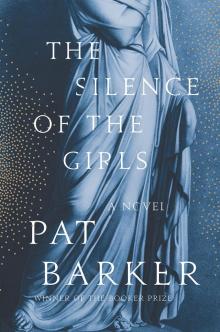 The Silence of the Girls
The Silence of the Girls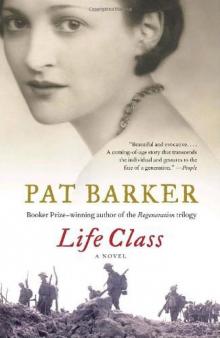 Life Class
Life Class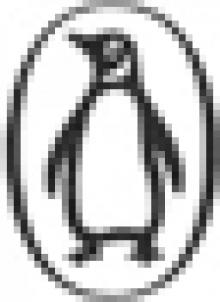 Regeneration
Regeneration Another World
Another World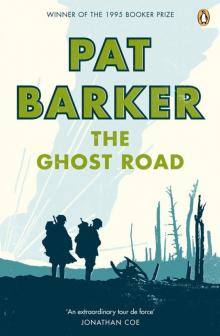 The Ghost Road
The Ghost Road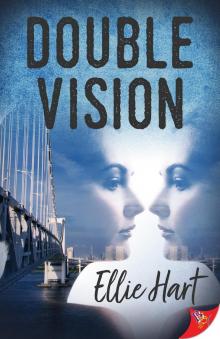 Double Vision
Double Vision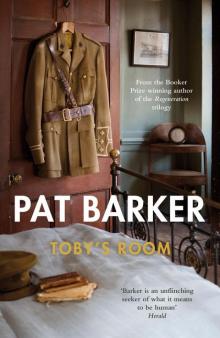 Toby's Room
Toby's Room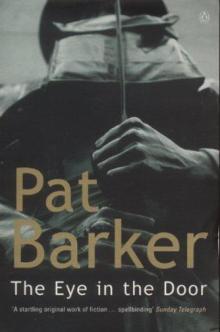 Regeneration Trilogy 02 - The Eye in the Door
Regeneration Trilogy 02 - The Eye in the Door The Eye in the Door
The Eye in the Door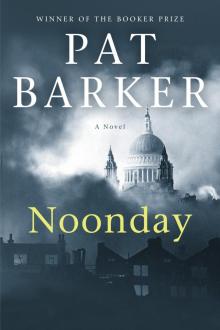 Noonday
Noonday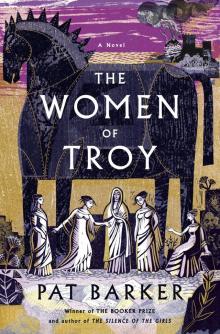 The Women of Troy: A Novel
The Women of Troy: A Novel